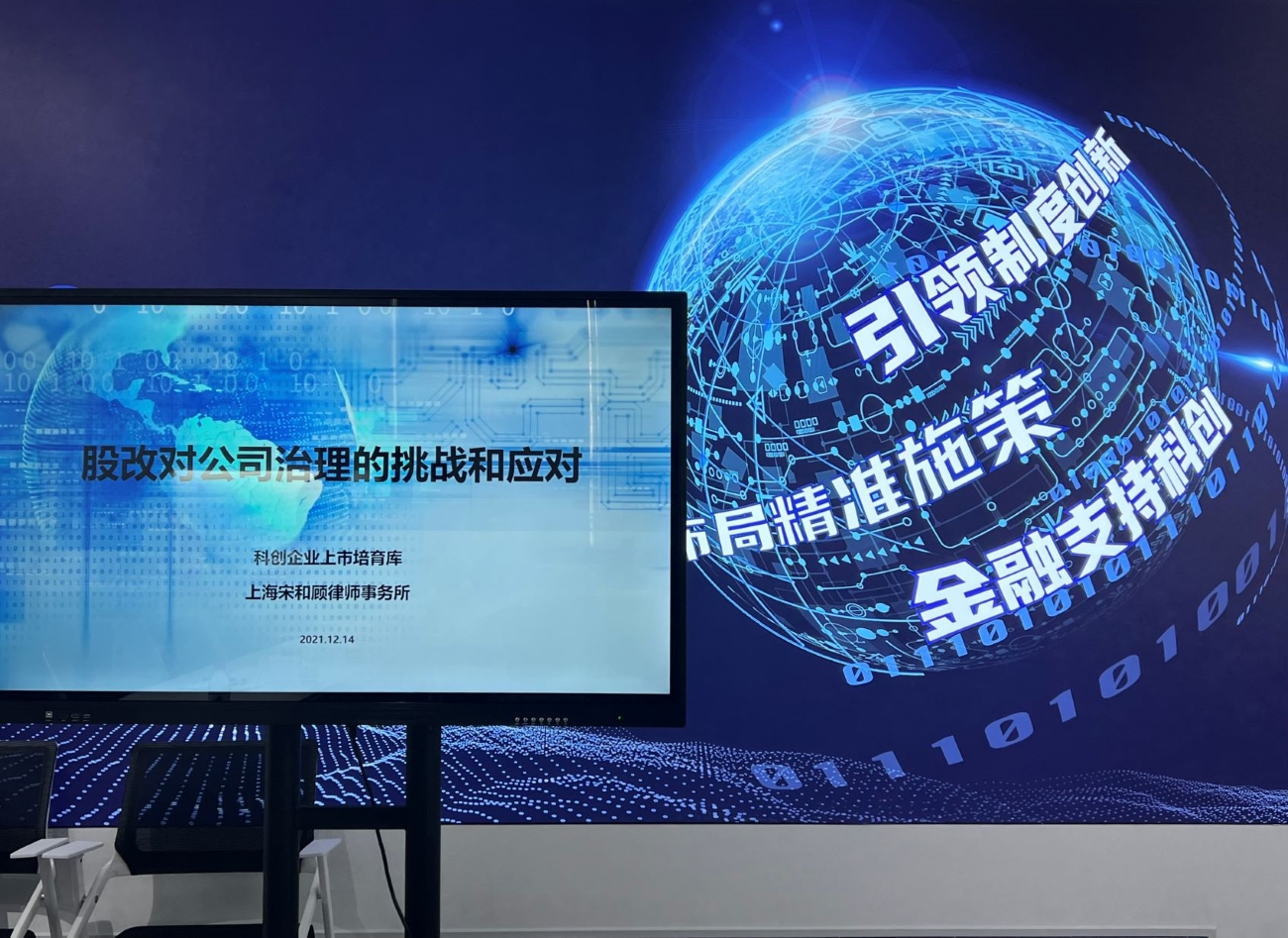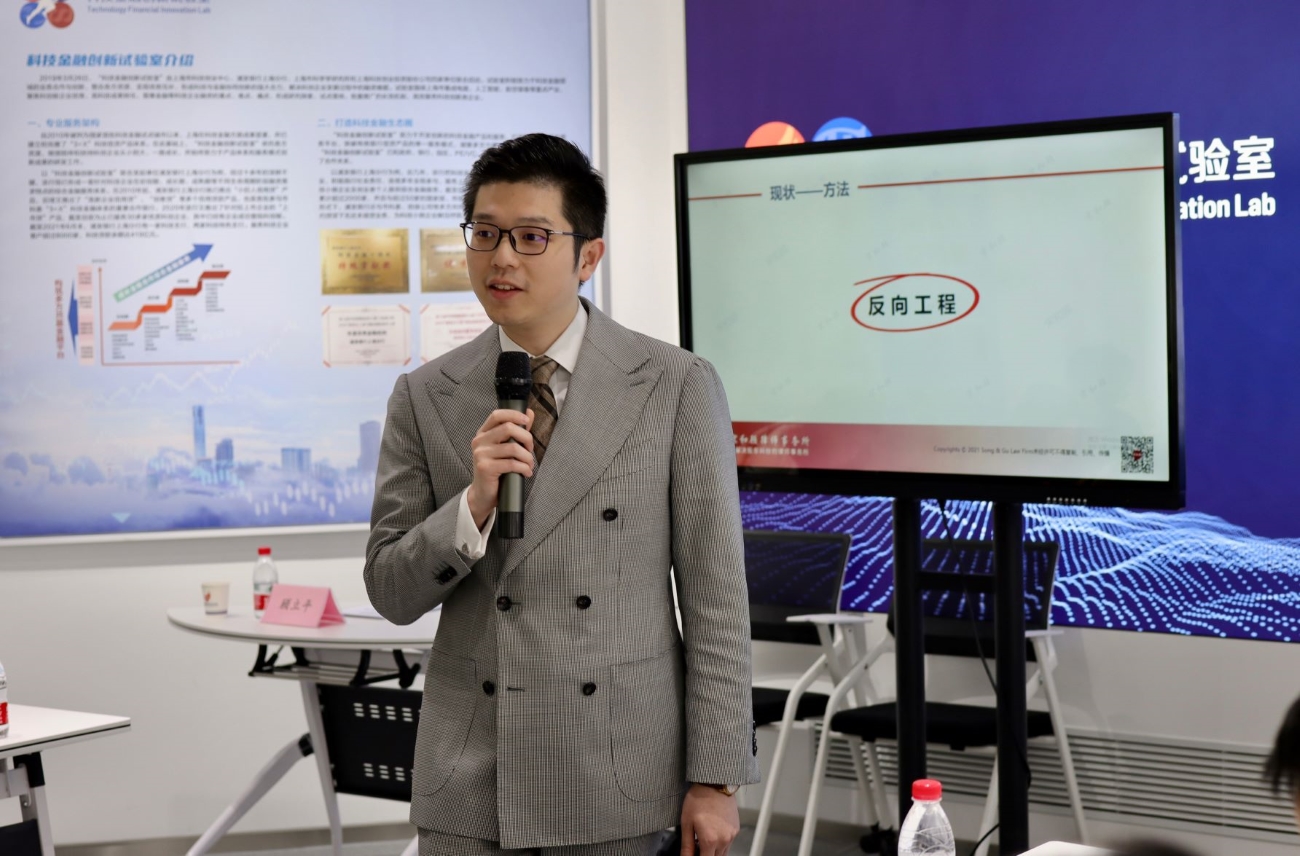


On December 14, 2021, Lawyer Gu Liping from our firm was invited by the Shanghai Technology Innovation Center to share insights on "Challenges and Responses of Shareholder Reform on Corporate Governance—From the Perspective of Preventing and Controlling Shareholder Disputes" in a salon event.

Lawyer Gu pointed out that corporate governance during shareholder reform is essentially a conditional equity transfer and capital increase agreement, where the "conditions" need to be continuously adjusted based on changes in the company's operations. So, what are these "conditions"? Lawyer Gu vividly explained two shareholder dispute cases encountered in practice, highlighting the three pillars of corporate governance: decision-making rules, information disclosure, and exit mechanisms.

How to design these three pillars effectively? Lawyer Gu provided a detailed analysis, emphasizing that the most critical aspects of an exit mechanism are the buyback conditions, buyback price, and buyback entity. Specifically, in equity financing, Lawyer Gu reminded entrepreneurs to pay close attention to valuation adjustment mechanisms (VAM) and to set appropriate thresholds for the "terms" imposed by investors. Information disclosure systems, which relate to shareholders' right to know, can be significantly strengthened by including "audit rights" in the company's articles of association.

Regarding decision-making rules, Lawyer Gu noted that the core lies in fully defining voting rights and reminded attendees to pay attention to meeting convening procedures, meeting discipline, meeting locations, and abstentions in related-party transactions.
The session concluded with enthusiastic applause from the attending entrepreneurs, who expressed that the session was "full of practical insights" and highly inspiring.